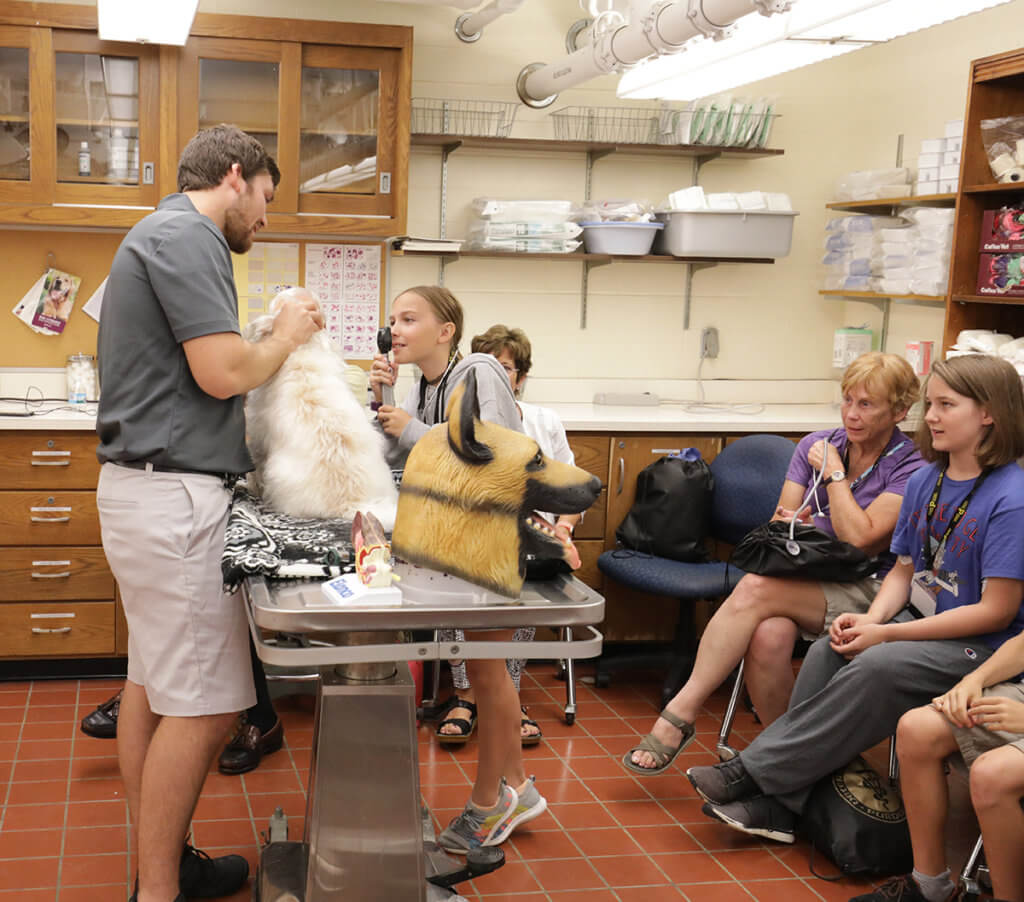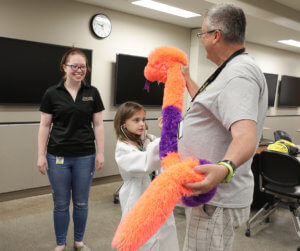
In a Grandparents University session for older children, a Purdue alum’s granddaughter participated in a hands-on PVM activity in which she was able to look in the eye of Drew, one of PVM’s “Pet Professors,” during a demonstration by Purdue veterinary student Brent Unruh.
Purdue Conferences and the Purdue Alumni Association came together to create the first Purdue Grandparents University and Purdue Veterinary Medicine contributed to the valuable learning experience. For two days at the end of June, alumni and their grandchildren, ages 7 to 14, got to live the college life by taking classes in a major of their choice, eating and living in a residence hall, and exploring other highlights of the Purdue University campus.
Veterinary medicine was one of eight options participants could choose as a “major.” PVM offered two different class options based on the participants’ age groups. Grandchildren ages 7- to 10-years-old and their grandparents were taught by Dr. Sandra San Miguel, associate dean for engagement. Participants got to explore careers in the veterinary medical profession; use artificial models to learn what’s inside of animals; practice performing wellness exams using real veterinary instruments; and pretend to be a surgeon. Examples of activities they performed using models included identifying skulls from different kinds of animals, placing a tube to help a dog breathe, and repairing a broken bone.

Purdue veterinary student Sara Canada helps during a Grandparents University session led by Dr. San Miguel in which a Purdue alumnus and his granddaughter learned how to perform a wellness exam.
Older grandchildren, ages 11- to 14-years-old, and their grandparents, learned about the day-to-day activities of veterinarians who work with both dogs and cows. Dr. Jim Weisman, assistant dean for student affairs and clinical associate professor, led the session in which the participants engaged in a variety of hands-on activities. They learned about physical exams, blood cells, and radiographs. In addition, they performed physical exam techniques on a dog, looked at blood cells under a microscope, and learned about the inside of the cow’s stomach.
For its first time, the Grandparents University program gave participants a great chance to explore the field of veterinary medicine. Equally important was the opportunity for alumni to relive their college days and create memories with their grandchildren.
Click here to learn more about the program.
